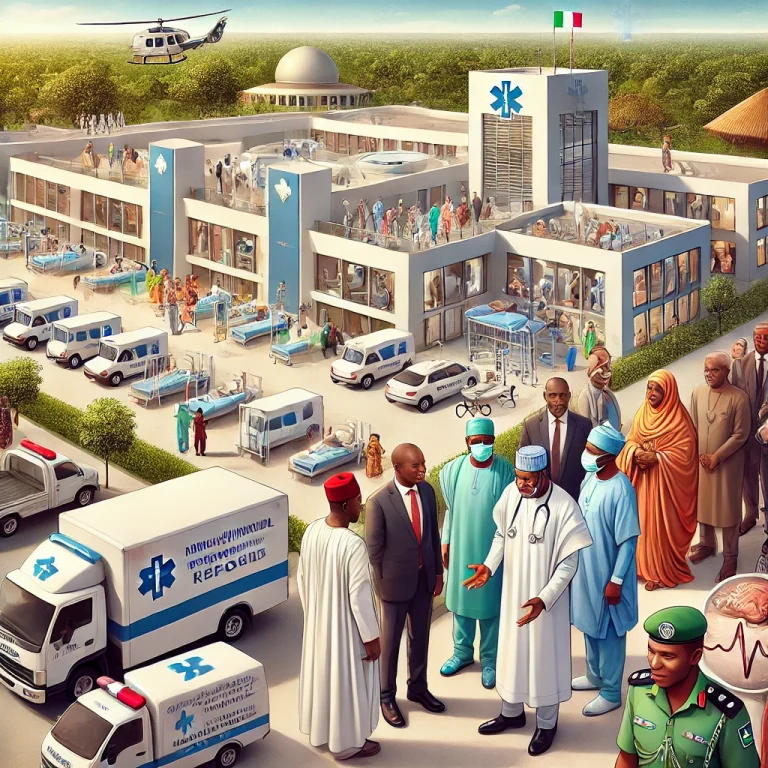Kaduna State Government has reaffirmed its commitment to improving healthcare and empowering young people.
Dr. Hadiza Balarabe, Deputy Governor, stated this on Thursday in Abuja at the 2025 National Health Dialogue, organized by CJID Africa and PremiumTimesng under the theme, “Evidence, Innovation, and Financing for a Healthier Nigeria.”
Highlighting Nigeria’s pressing health challenges, she said the nation requires renewed collaboration, credible data, innovation, and sustainable financing to meet the realities of 2026 and beyond. She stressed that every sector must take deliberate action to improve the country’s healthcare system.
The dialogue convened high-level government officials and global health leaders to discuss primary healthcare, sustainable financing, and health sector innovation.
Balarabe noted that health has consistently received 15 per cent of Kaduna State’s total budget since 2023. She emphasized the importance of youth participation in governance, stating, “The quality of leadership depends on the opportunities provided today.”
She outlined Kaduna State’s multi-sectoral approach, linking education, nutrition, and healthcare to promote resilience and sustainable development. She also detailed efforts to strengthen emergency care, improve service delivery, and expand access to maternal and child health services across the state.
“Kaduna State has revitalized primary healthcare by upgrading facilities, expanding emergency services, increasing the ambulance fleet, and recruiting 1,800 healthcare workers,” she said. “Monitoring and tracking systems have been implemented, and partnerships with organizations like the Gates Foundation are helping to improve financing and service delivery, particularly in rural communities.”
Addressing maternal and neonatal health, Balarabe acknowledged ongoing challenges with maternal mortality but noted improvements in neonatal outcomes. “We’re operating at level two, focusing on providing emergency support for women. We cannot continue to have children while mothers are lost, so we are putting systems in place to ensure they receive the care they need,” she said.
In a goodwill message, Ms. Fatima Abubakar-Alkali, Senior Communications Officer at the Gates Foundation, highlighted that Nigeria’s health sector challenges go beyond funding. She pointed to weak oversight, inefficiencies, and a culture of micromanagement as barriers to reform, urging officials to uphold their commitments as the country approaches 2026.
Abubakar-Alkali also emphasized the role of journalists, civil society, and citizens in tracking budgets, monitoring implementation, and demanding accountability. She framed declining donor funding as an opportunity to build a sustainable, people-centred health system that prioritizes local needs and relies on robust data.
Dr. Temitope Ilori, Director-General of the National Agency for the Control of AIDS (NACA), praised journalism’s critical role in shaping the health sector. She called for stronger collaboration among stakeholders to tackle both persistent and emerging public health challenges. Ilori emphasized that quality reporting informs citizens, influences policy, and can save lives by exposing urgent gaps.
“While Nigeria has made significant progress in its HIV response, sustaining these gains will require stronger partnerships, better coordination, and continued investment in prevention, treatment, and health system improvements,” she said. Ilori described the dialogue as a timely platform to reflect on progress, address bottlenecks, and chart pathways toward a more sustainable, people-centred health sector.
Mrs. Vivianne Ihekweazu, Managing Director of Nigeria Health Watch, underscored the importance of evidence-based reporting in shaping public health debates. She highlighted the Community HealthWatch project, which trains journalists to monitor healthcare delivery at the local level, stressing that improving primary healthcare involves more than infrastructure—it requires quality care.
Dr. Ibrahim Wada, Founder and CEO of Nisa Medical Group, reflected on Nigeria’s health system progress and the potential of public-private partnerships. He emphasized merit-based staffing, functional equipment, and digital hospital systems, noting that quality healthcare requires equitable resource distribution, sustained investment, and insulation from political influence.


